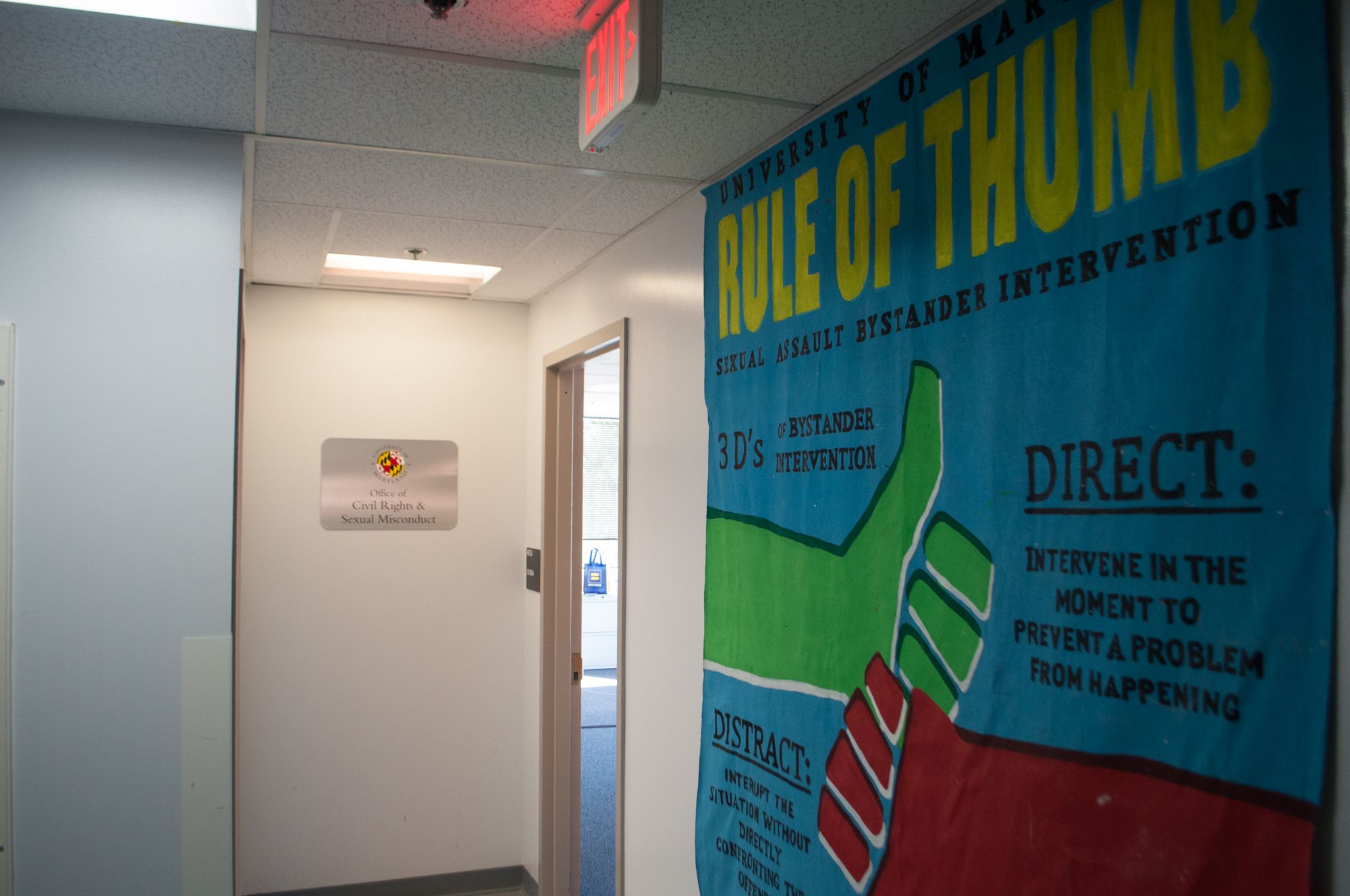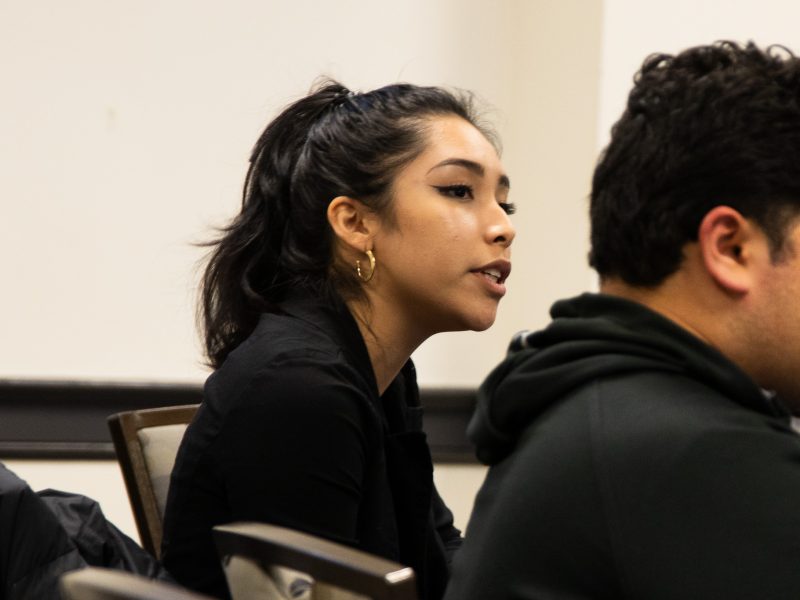The University of Maryland is in a “period of uncertainty” following the rescission of the Obama administration’s Title IX guidelines, university President Wallace Loh said.
U.S. Education Secretary Betsy DeVos implemented “interim guidance” for universities on Sept. 22. The temporary rules allow schools to decide which standard of evidence to use when handling sexual misconduct cases. Previously, universities were told to use a preponderance of evidence model. Now, they can choose to use a “clear and convincing standard,” which is more difficult to meet.
Currently, this university uses the preponderance of evidence standard, according to its sexual misconduct policy and procedures. What this university ultimately does, though, must align with the University System of Maryland and Maryland state law, Loh said.
“We have to wait and see what the law is. We don’t know what it is. It could be the same. It could be different,” Loh said.
The U.S. Education Department will have a public comment period before permanently setting new rules. Loh said the university would comment during this process, but he would not specify whether this university’s policy would change or remain the same during the interim guidance period.
[Read more: Betsy DeVos rescinds Obama-era guidelines for investigating campus sexual assault]
“All I can say with absolute certainty is that we’re absolutely committed to having a campus safe from sexual misconduct, sexual assault,” Loh said.
Obama’s 2011 “Dear Colleague” letter came with no advance warning or comment period, which Loh said caught him off guard.
“Even though I’m totally in support of the Obama regulations, I was quite honestly appalled,” he said. “What I appreciate [with Devos’ change] … is an interim period, interim until they have regulations, and [they’re saying] ‘We’re giving you flexibility.'”
The letter told the colleges and universities receiving federal funding to use the preponderance of evidence standard, meaning it’s “more likely than not” a policy violation occurred, when assessing sexual misconduct cases.
University general counsel Mike Poterala said this university’s evidentiary standards won’t change unless there is new legislation mandating them.
The letter also told these colleges to allow accusers to appeal “not guilty” findings and to complete their investigation procedures in 60 days or less, a standard this university has struggled to meet. Investigations at this university often take twice as long to complete, according to the second annual Student Sexual Misconduct Report.
This university is one of more than 200 colleges under investigation by the federal Office of Civil Rights for its handling of sexual misconduct cases.
[Read more: UMD SGA supports US Senate bill that would increase funding for Title IX offices]
“I know there’s anxiety in the country because of DeVos,” Poterala said after DeVos’ initial announcement on Sept. 7. “We have tried in the previous statement to let people know: Don’t worry here.”
Due to a recent change, this university’s Title IX Officer Catherine Carroll reports to Poterala instead of Loh’s chief of staff, Michele Eastman. SGA President AJ Pruitt said in a statement that Carroll categorized the move as a “demotion” during a Sept. 7 conversation.
Cristina Johnson, president of this university’s Preventing Sexual Assault organization, said this move, which occurred without a corresponding university announcement, is “already a signal of something changing on this campus,” even if the investigation procedure does not.
Johnson called DeVos’ announcement “worrisome.”
“… Even if we’re not fully changing our policies, just hearing people say [they’re] de-prioritizing survivors and victims is going to affect campuses everywhere,” said Johnson, a senior journalism major.
Fatima Taylor, assistant director at CARE to Stop Violence, a confidential resource for sexual assault survivors on the campus, said the federal guidelines do not change the work of her office.
“My office only works in a supportive role, if requested, during the adjudication process,” she wrote in an email. “The standard of evidence does not change this.”
Poterala, whose office is regularly involved in Title IX proceedings, said his team will work on behalf of both victims and the accused in sexual assault cases.
“Our obligation is to protect the rights of every member of the campus community,” Poterala said. “So, assessing what are the rights of the victims, as well as the accused.”



